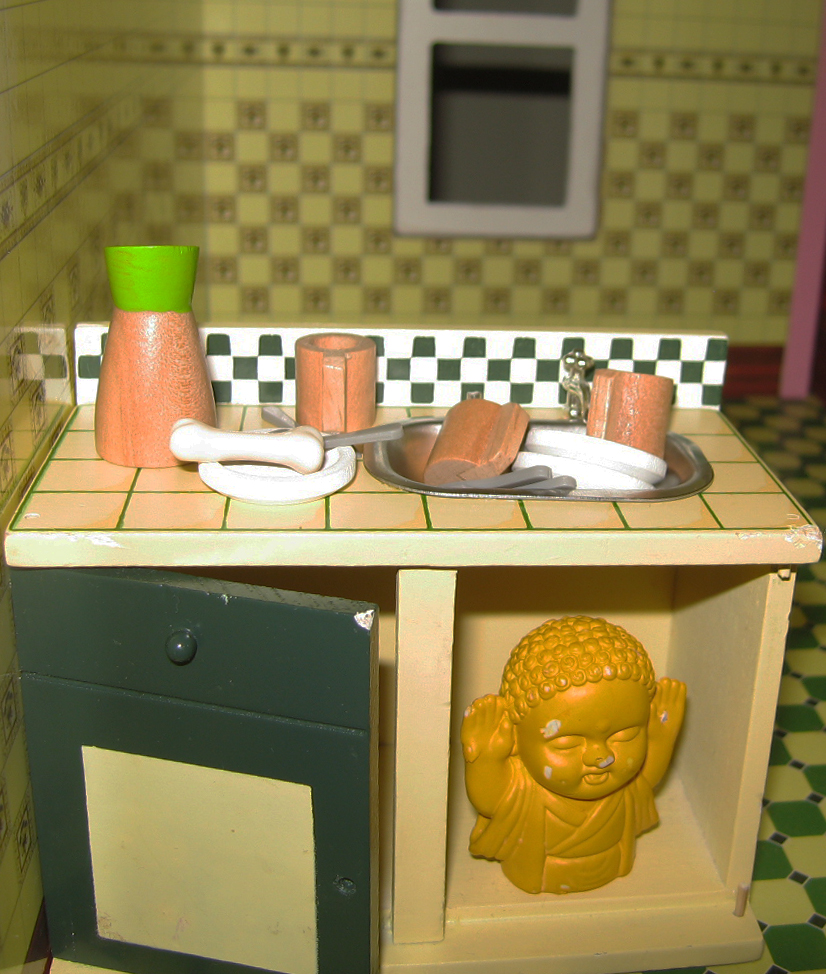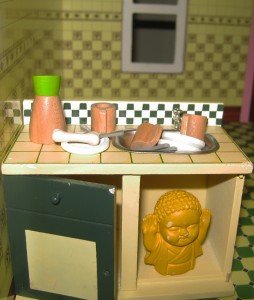Housekeeping ain’t no joke. —Louisa May Alcott
It wasn’t too terribly long ago that the work of home was relegated solely to the woman of the house. It was she that nurtured spirits, nourished bodies, and maintained the order of the collective community. Mother, wife, daughter was the goddess that ruled over all things domestic.
Thankfully, the days of subjugated domesticity are gone. No longer is it required of a woman that she spend the majority of her days and nights “joyfully” consumed by the needs of everyone else.
Finally, there is some well deserved breathing room for a life spent on her own pursuits…and yet, the housework remains, as does the household’s aversion to tend to it.
So, how does modern society embrace housekeeping without woman as an indentured servant?
Chop Wood, Carry Water
If you were to walk into a cloistered spiritual community, you’d be hard pressed to find anyone who was not engaged in tending to its daily management. Some cook, some clean, some tend to the infirmed, but everyone works.
At first glance, you might think that it is communal living alone that drives this necessity, but chores can also be an integral part of spiritual practice. It is from the daily, repetitive household duties that one can derive the benefits of mindfulness, discipline, humility, service, and gratitude.
Is it Mindless or Mindful?
Many complain that chores are mindless work. However, chores that do not require a great deal of headspace to complete are great for stilling the incessant chatter of the mind. It is the mindless chore that provides us opportunity to cultivate a sense of mindfulness (aka present moment awareness). So, the next time you’ve got to hand wash some dishes or mow the lawn try to focus only on the task at hand. What are the physical sensations that arise as you work? What do you smell? See? Feel? Dive into the physical act of doing the chore and let go of everything else.
Wet, Lather, Rinse, Repeat
It is the repetitiveness of chores that drive so many to madness. Day in, day out, we do the same task over and over and over…ad nauseum. But, there are lessons to be gleaned in the work that never finds completion. These god-forsaken tasks are the ones in which we build the muscle of discipline and come to terms with the impermanence of all temporal things.
Don’t Be Fooled, It’s a Toilet, Not a Throne
Personally, I hate nothing more than cleaning the family toilet. There is absolutely no chore more ego busting for me. If you find your ego feeling ever so small in the middle of a chore, keep in mind that the more you succumb to humbling yourself, the more you will see your equal footing with the rest of humanity. From this perspective we begin to build compassion for and recognition of the dignity in everyone.
My Brother’s Keeper
We can fill the moment of completing a task with love for the people it will help. Whether it’s caring for the needs of family, friends, clients, or colleagues, being of service to others is a cornerstone of spiritual practice.
Although you may not notice it in the moment, the chores you complete have an impact on the lives around you. The work you do on behalf of the communal home lightens the load and clears a path for others. Your efforts create space for those around you to accomplish more than they would have without you.
Wanting What You Have
Whenever I get bogged down by the housework that needs my attention, I remind myself that everything I lovingly attend to in my life is an affirmation of my gratitude for its existence.
As I wash my dishes, I can be grateful for the food in my belly. As I fold my laundry, I can be grateful for the clothes on my back. For every inch of scrubbing my house requires, I can be grateful for the roof over my head. Every task and responsibility my home brings me, also bears a gift.
Be It Ever So Humble, There’s No Place Like Home
Whether you are taking care of yourself, your family, or a community, chores afford you a moment to focus solely on the task at hand, feel your connection to the rest of humanity, give of yourself and express your love to others, and cultivate an appreciation for all that Life has bestowed upon you as both a gift and a responsibility.
It is not the act of domesticity that devalues the work, but our perceptions of the work at hand that devalues the act.
So the next time you’re getting ready to begrudge the housework in front of you, consider instead that these never-ending, mundane tasks are actually providing you space for a spiritual practice.



 The Gift of Being Stuck
The Gift of Being Stuck